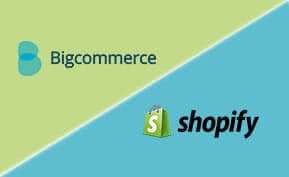Artificial Intelligence
CRM
Vendor Comparison: Salesforce vs Microsoft vs HubSpot AI CRM Solutions

Selecting the right AI CRM vendor represents one of the most critical technology decisions organizations will make for customer relationship excellence. Salesforce, Microsoft, and HubSpot have emerged as the leading AI CRM providers, each offering distinct approaches to artificial intelligence integration and customer engagement optimization. This comprehensive analysis provides detailed comparison across functionality, AI capabilities, implementation approach, and total cost of ownership.
Executive Summary: Vendor Positioning
Salesforce Einstein: Market leader in AI sophistication with the most advanced machine learning capabilities and comprehensive customer engagement platform. Best suited for large enterprises requiring cutting-edge AI functionality across Marketing, Sales, and Service.
Microsoft Dynamics 365 with Copilot: Integration champion leveraging the broader Microsoft ecosystem including Office 365, Teams, and Azure. Optimal for organizations already invested in Microsoft technologies seeking unified business platform.
HubSpot CRM with AI: Growth platform leader providing comprehensive inbound marketing, sales, and service with strong AI capabilities and exceptional user experience. Ideal for growing companies prioritizing ease of use and integrated customer experience.
Detailed Vendor Analysis
Salesforce Sales, Marketing & Service Cloud with Einstein AI
Market Position:
Salesforce dominates the enterprise CRM market with the most sophisticated AI capabilities currently available across the complete customer lifecycle. Einstein AI represents the most advanced artificial intelligence platform in the customer relationship management industry.
Core AI Capabilities:
Einstein AI Platform:
- Comprehensive Intelligence: 500+ AI-powered features across Marketing, Sales, and Service clouds
- Cross-Cloud Integration: Seamless AI experience across all customer touchpoints and departments
- Advanced Machine Learning: Deep learning algorithms with continuous improvement capabilities
- Natural Language Processing: Conversational interaction with complex customer data and insights
Marketing Cloud Einstein:
- Journey Optimization: AI-powered customer journey mapping and optimization across all channels
- Personalization at Scale: 1:1 personalized experiences for millions of customers simultaneously
- Predictive Analytics: Customer behavior prediction and next-best-action recommendations
- Content Intelligence: Automated content creation and optimization based on performance data
Sales Cloud Einstein:
- Lead Scoring: 89% accuracy in lead qualification using 200+ data points
- Opportunity Insights: Deal probability assessment and optimization recommendations
- Activity Capture: Automated logging of emails, calls, and meetings
- Revenue Intelligence: Advanced forecasting and pipeline analysis with predictive modeling
Service Cloud Einstein:
- Case Classification: Automatic case routing and priority assignment
- Knowledge Recommendations: AI-powered solution suggestions for service agents
- Predictive Service: Proactive issue identification and prevention
- Customer Sentiment Analysis: Real-time analysis of customer communication sentiment
Implementation Considerations:
- Timeline: 6-18 months for comprehensive implementation across all clouds
- Complexity: High technical sophistication requiring dedicated IT resources and expertise
- Change Management: Significant organizational change management investment required
- Customization: Extensive customization options but complexity increases cost and timeline
Total Cost of Ownership (3-Year Analysis):
- Software Licensing: $150-300+ per user per month depending on cloud combination
- Implementation Services: $500K-$5M+ depending on organizational complexity and scope
- Training and Change Management: $200K-$1M for comprehensive adoption
- Ongoing Support: 18-22% of license cost annually
- Total 3-Year TCO: $2M-$25M+ for enterprise implementations
Optimal Use Cases:
- Large enterprises ($100M+ annual revenue) with complex customer engagement requirements
- Organizations requiring cutting-edge AI capabilities across Marketing, Sales, and Service
- Companies with dedicated IT teams and significant technical expertise
- Industries requiring sophisticated compliance and regulatory capabilities
- Global organizations needing comprehensive localization and scalability
Competitive Advantages:
- Most advanced AI capabilities in the market across all customer touchpoints
- Comprehensive functionality covering complete customer lifecycle
- Strong industry-specific solutions and vertical expertise
- Extensive global support and service organization
- Largest ecosystem of partners, apps, and integrations
Potential Limitations:
- High complexity requiring significant technical expertise and resources
- Expensive implementation and ongoing costs
- Long deployment timeline may delay benefits realization
- Steep learning curve for users transitioning from simpler systems
- Can be overwhelming for smaller organizations with basic needs
Microsoft Dynamics 365 Customer Engagement with Copilot
Market Position:
Microsoft leverages its dominant position in productivity software and cloud infrastructure to provide seamlessly integrated AI CRM capabilities across the entire Microsoft ecosystem and business platform.
Core AI Capabilities:
Copilot Integration:
- Office 365 Integration: Native AI assistance within familiar Microsoft applications
- Teams Collaboration: AI-powered project management and customer communication
- Power Platform: Low-code/no-code AI application development capabilities
- Azure AI Services: Access to Microsoft’s comprehensive artificial intelligence platform
Marketing Automation with AI:
- Customer Insights: Real-time customer behavior analysis and segmentation
- Journey Orchestration: Automated customer journey design and optimization
- Content Personalization: AI-driven content recommendations and optimization
- Marketing Attribution: Advanced analytics for campaign performance and ROI measurement
Sales Acceleration with Copilot:
- Relationship Analytics: AI-powered analysis of customer relationships and engagement patterns
- Sales Insights: Predictive analytics for deal probability and optimization recommendations
- LinkedIn Integration: Social selling intelligence through LinkedIn Sales Navigator
- Conversation Intelligence: AI analysis of sales calls and meetings for coaching insights
Customer Service Intelligence:
- Omnichannel Engagement: AI-powered customer service across all communication channels
- Virtual Agent: Conversational AI for automated customer support
- Knowledge Management: AI-enhanced knowledge base and solution recommendations
- Case Resolution: Predictive analytics for case routing and resolution optimization
Implementation Considerations:
- Timeline: 3-12 months with faster deployment for Microsoft-centric organizations
- Complexity: Moderate complexity with familiar Microsoft interface reducing training requirements
- Integration: Seamless integration with existing Microsoft infrastructure and productivity tools
- Scalability: Flexible scaling options accommodating growth requirements
Total Cost of Ownership (3-Year Analysis):
- Software Licensing: $95-200 per user per month depending on feature combination
- Implementation Services: $200K-$2M depending on customization and integration requirements
- Training and Change Management: $100K-$500K for comprehensive adoption
- Microsoft 365 Integration: Additional $10-30 per user per month for full productivity suite
- Total 3-Year TCO: $1M-$12M for mid-size to large implementations
Optimal Use Cases:
- Organizations heavily invested in Microsoft technology stack and productivity tools
- Mid-size to large companies ($25M-$1B annual revenue) requiring balanced functionality and cost
- Companies prioritizing user adoption through familiar interfaces and workflows
- Organizations requiring strong integration with productivity and collaboration tools
- Businesses needing flexible customization without extensive technical expertise
Competitive Advantages:
- Seamless integration with Microsoft ecosystem and productivity tools
- Familiar user interface reducing training requirements and accelerating adoption
- Flexible deployment options (cloud, hybrid, on-premises)
- Strong low-code/no-code development platform for customization
- Comprehensive productivity and collaboration integration
Potential Limitations:
- AI capabilities less sophisticated than Salesforce’s Einstein platform
- May require multiple Microsoft licenses increasing total cost of ownership
- Limited industry-specific functionality compared to specialized solutions
- Dependence on Microsoft ecosystem may limit technology flexibility
- Integration complexity for organizations using non-Microsoft technologies
HubSpot CRM with AI-Powered Growth Platform
Market Position:
HubSpot has established itself as the leader in inbound marketing and growth platform solutions, providing comprehensive AI-enhanced CRM capabilities with exceptional user experience and rapid time-to-value.
Core AI Capabilities:
Growth Platform Intelligence:
- Inbound Marketing AI: Content optimization and lead generation through AI-powered inbound strategies
- Customer Journey Analytics: Complete visibility into customer lifecycle and touchpoint optimization
- Revenue Operations: AI-driven revenue optimization across Marketing, Sales, and Service
- Growth Analytics: Predictive insights for customer acquisition and expansion strategies
Marketing Hub AI Features:
- Content Strategy: AI-powered content recommendations and SEO optimization
- Lead Scoring: Predictive lead qualification and nurturing automation
- Campaign Optimization: Machine learning-driven campaign performance improvement
- Attribution Analytics: AI-enhanced marketing attribution and ROI measurement
Sales Hub AI Capabilities:
- Conversation Intelligence: AI analysis of sales calls and email communications
- Deal Insights: Predictive analytics for deal probability and pipeline optimization
- Sequence Automation: AI-powered email sequences and follow-up optimization
- Forecasting: Machine learning-based sales forecasting and performance prediction
Service Hub AI Features:
- Customer Health Scoring: Predictive customer satisfaction and churn prevention
- Ticket Automation: AI-powered case routing and resolution recommendations
- Knowledge Base Optimization: Intelligent content suggestions and search optimization
- Customer Feedback Analysis: Automated sentiment analysis and insight generation
Implementation Considerations:
- Timeline: 1-6 months with rapid deployment and immediate value realization
- Complexity: Low to moderate complexity with intuitive interface and user-friendly design
- Change Management: Minimal change management required due to exceptional user experience
- Scalability: Flexible scaling from startup to enterprise with consistent user experience
Total Cost of Ownership (3-Year Analysis):
- Software Licensing: Free tier available, paid plans $45-1,200+ per month per seat
- Implementation Services: $25K-$300K depending on complexity and customization
- Training and Change Management: $25K-$150K for comprehensive adoption
- Additional Features: Marketing and Service Hubs additional cost for complete platform
- Total 3-Year TCO: $200K-$2M for comprehensive implementations
Optimal Use Cases:
- Growing companies ($5M-$200M annual revenue) prioritizing growth and customer experience
- Organizations seeking integrated inbound marketing and customer relationship management
- Companies prioritizing user adoption and ease of use over advanced customization
- Businesses requiring rapid implementation and immediate time-to-value
- Organizations focusing on inbound customer acquisition and retention strategies
Competitive Advantages:
- Exceptional user experience and highest adoption rates in the industry
- Comprehensive inbound marketing and growth methodology integration
- Free tier allowing organizations to start immediately and scale gradually
- Rapid implementation and immediate value realization
- Strong focus on customer success and support throughout implementation
Potential Limitations:
- Less sophisticated AI capabilities compared to Salesforce Einstein
- Limited customization options for highly complex business requirements
- May require additional tools for advanced enterprise functionality
- Pricing can escalate quickly with advanced features and user growth
- Less suitable for organizations requiring extensive industry-specific functionality
Comprehensive Feature Comparison Matrix
| Capability | Salesforce Einstein | Microsoft Dynamics 365 Copilot | HubSpot AI Growth Platform |
|---|---|---|---|
| AI Sophistication | ⭐⭐⭐⭐⭐ Most Advanced | ⭐⭐⭐⭐ Strong Integration | ⭐⭐⭐⭐ Growth-Focused |
| Marketing Automation | ⭐⭐⭐⭐⭐ Industry Leading | ⭐⭐⭐⭐ Comprehensive | ⭐⭐⭐⭐⭐ Inbound Excellence |
| Sales Intelligence | ⭐⭐⭐⭐⭐ Advanced Analytics | ⭐⭐⭐⭐ LinkedIn Integration | ⭐⭐⭐⭐ Pipeline Focus |
| Service Excellence | ⭐⭐⭐⭐⭐ Comprehensive | ⭐⭐⭐⭐ Omnichannel | ⭐⭐⭐⭐ Customer Success |
| Implementation Complexity | ⭐⭐ High Complexity | ⭐⭐⭐ Moderate | ⭐⭐⭐⭐⭐ Simple |
| User Adoption | ⭐⭐⭐ Learning Curve | ⭐⭐⭐⭐ Familiar Interface | ⭐⭐⭐⭐⭐ Excellent UX |
| Total Cost | ⭐⭐ High Investment | ⭐⭐⭐ Balanced Cost | ⭐⭐⭐⭐ Value-Driven |
| Customization | ⭐⭐⭐⭐⭐ Extensive | ⭐⭐⭐⭐ Power Platform | ⭐⭐⭐ Standard Options |
| Integration Ecosystem | ⭐⭐⭐⭐⭐ Largest | ⭐⭐⭐⭐⭐ Microsoft Ecosystem | ⭐⭐⭐⭐ Growth Stack |
| Scalability | ⭐⭐⭐⭐⭐ Enterprise Grade | ⭐⭐⭐⭐ Flexible Scaling | ⭐⭐⭐⭐ Startup to Enterprise |
Implementation Timeline Comparison
Salesforce Einstein Implementation Timeline
- Months 1-3: Foundation setup and core configuration across clouds
- Months 4-9: Advanced feature implementation and integration
- Months 10-15: AI optimization, testing, and user training
- Months 16-18: Go-live support and performance optimization
Microsoft Dynamics 365 Implementation Timeline
- Months 1-2: Setup and basic configuration with Microsoft integration
- Months 3-6: Feature deployment and Copilot integration
- Months 7-9: User training and change management
- Months 10-12: Go-live and optimization
HubSpot Implementation Timeline
- Month 1: Setup and basic configuration with immediate usage
- Months 2-3: Advanced feature deployment and integration
- Months 4-6: Optimization and advanced user training
Industry-Specific Recommendations
Technology/SaaS Companies
Recommended Solution: HubSpot CRM with AI Growth Platform
- Rationale: Comprehensive inbound marketing with rapid customer acquisition and product-led growth optimization
- Alternative: Salesforce Einstein for enterprise-scale technology companies
- Budget Consideration: Best value for growing technology companies prioritizing speed and user adoption
Professional Services
Recommended Solution: Microsoft Dynamics 365 with Copilot
- Rationale: Client relationship management integration with Office 365 and Teams collaboration
- Alternative: HubSpot for consulting firms focused on inbound business development
- Budget Consideration: Microsoft ecosystem integration provides comprehensive value
Manufacturing
Recommended Solution: Salesforce Einstein
- Rationale: Complex account management and service optimization for industrial customers
- Alternative: Microsoft Dynamics 365 for organizations heavily using Microsoft technologies
- Budget Consideration: Advanced AI capabilities justify investment for complex B2B relationships
Healthcare and Life Sciences
Recommended Solution: Salesforce Einstein
- Rationale: Superior compliance capabilities and industry-specific functionality
- Alternative: Microsoft Dynamics 365 for healthcare organizations using Microsoft infrastructure
- Budget Consideration: Compliance requirements support premium solution investment
Financial Services
Recommended Solution: Salesforce Einstein
- Rationale: Advanced security, compliance, and customer relationship management capabilities
- Alternative: Microsoft Dynamics 365 for financial institutions with Microsoft ecosystem
- Budget Consideration: Regulatory requirements justify comprehensive platform investment
Decision Framework and Selection Criteria
Technical Evaluation Factors
- AI Capability Requirements: Assess the sophistication of AI features needed for competitive advantage
- Integration Complexity: Evaluate existing system landscape and integration requirements
- User Experience Priorities: Consider adoption requirements and user satisfaction importance
- Scalability Needs: Plan for future growth and expansion requirements
- Customization Requirements: Assess need for extensive customization and flexibility
Business Evaluation Factors
- Industry Requirements: Consider vertical-specific functionality and best practices
- Organizational Size and Complexity: Match solution capability to organizational needs
- Budget and ROI: Evaluate total cost of ownership against expected benefits
- Implementation Timeline: Consider urgency and business disruption tolerance
- Growth Plans: Assess platform scalability for future expansion
Risk Assessment Factors
- Vendor Stability: Evaluate long-term viability and market position
- Technology Evolution: Consider platform flexibility and innovation capability
- Implementation Risk: Assess complexity and potential deployment challenges
- Total Cost Variability: Understand potential cost overruns and scope expansion
- Competitive Positioning: Evaluate how solution choice affects market competitiveness
Conclusion and Recommendations
Choose Salesforce Einstein if:
- You require the most advanced AI capabilities available across Marketing, Sales, and Service
- Your organization is large and complex with sophisticated customer engagement requirements
- Budget allows for premium solution investment with high expected ROI
- You have dedicated technical resources for implementation and ongoing management
- Industry-specific functionality and compliance are critical for competitive advantage
Choose Microsoft Dynamics 365 with Copilot if:
- Your organization is already invested in the Microsoft technology ecosystem
- You prioritize integration with productivity tools and familiar user interfaces
- You need balanced functionality and cost for comprehensive customer engagement
- Implementation timeline is important and you want to minimize disruption
- Collaboration and productivity integration are business priorities
Choose HubSpot CRM with AI if:
- You prioritize user adoption and ease of use for rapid implementation
- Your organization is focused on inbound marketing and growth optimization
- You need immediate time-to-value with minimal complexity
- Budget considerations favor value-driven solutions with flexible scaling
- Customer experience and user satisfaction are primary concerns
Next Steps for Vendor Selection
- Requirements Definition: Document specific business and technical requirements across Marketing, Sales, and Service
- Proof of Concept: Conduct detailed evaluation with shortlisted vendors using real customer data
- Reference Customer Interviews: Speak with similar organizations about their implementation experience and results
- Total Cost Analysis: Develop comprehensive 5-year cost models for each option including hidden costs
- Implementation Partner Selection: Choose experienced consultants for selected platform
- Contract Negotiation: Optimize licensing terms, implementation agreements, and success metrics
The AI CRM vendor selection decision will significantly impact organizational capabilities and competitive positioning for the next decade. Careful evaluation using this framework ensures optimal alignment between customer engagement requirements and solution capabilities across the complete customer lifecycle.






